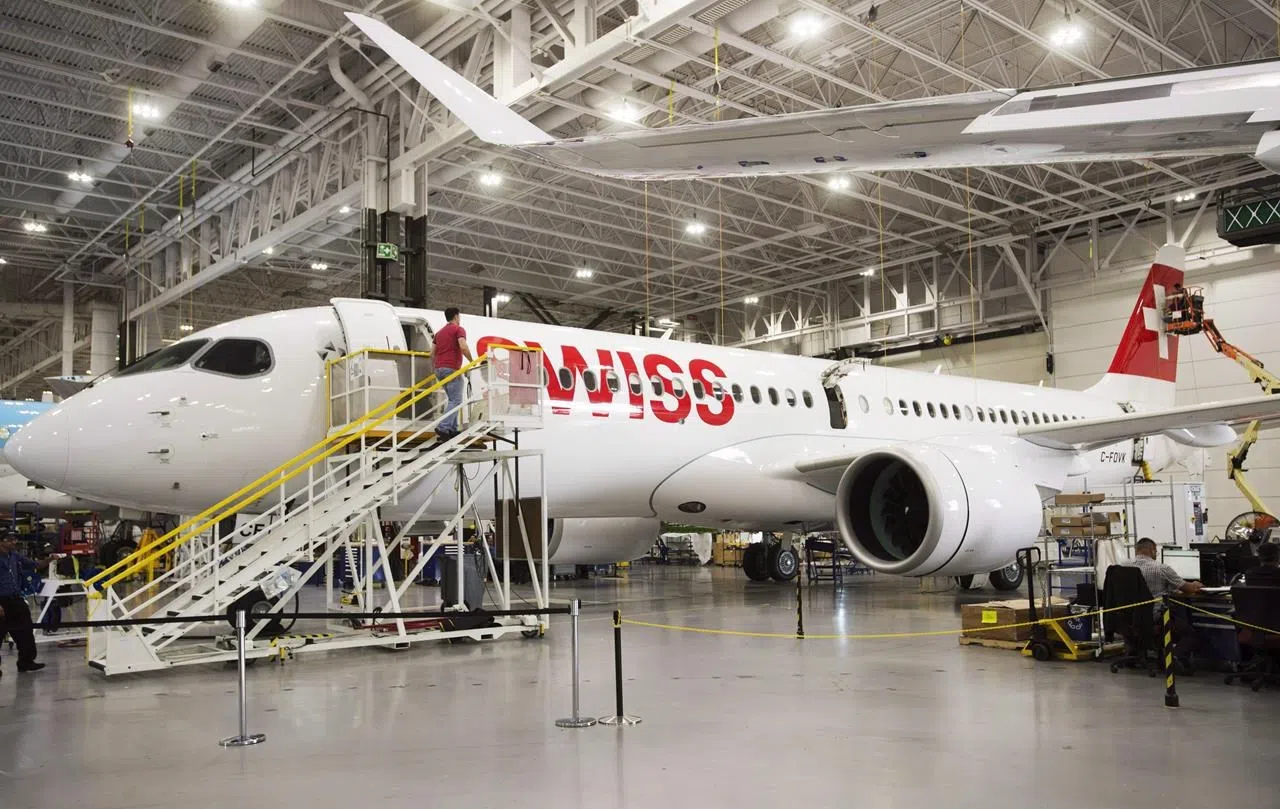
Bombardier turns tables on Boeing with Airbus deal it says avoids CSeries duties
MONTREAL — Bombardier Inc. believes its partnership with Airbus puts it on a strong legal footing to avoid import duties for its CSeries commercial jets while turning the tables on Boeing.
The Montreal-based company has a legal opinion that no duties can apply because the final assembly of the plane for U.S. customers will be done at Airbus’s plant in Alabama, said a source.
“The assembly in the U.S. can resolve the issue because then it becomes a domestic product and therefore a domestic product would not have the import tariff apply to this,” Bombardier CEO Alain Bellemare said Tuesday in Toulouse, France, after announcing a partnership with Airbus.
He told reporters that the company will continue to fight Boeing’s “unfair and unjustified” petition.
